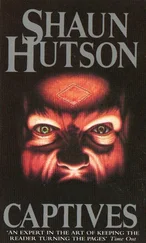Norman Manea - Captives
Здесь есть возможность читать онлайн «Norman Manea - Captives» весь текст электронной книги совершенно бесплатно (целиком полную версию без сокращений). В некоторых случаях можно слушать аудио, скачать через торрент в формате fb2 и присутствует краткое содержание. Год выпуска: 2014, Издательство: New Directions, Жанр: Современная проза, на английском языке. Описание произведения, (предисловие) а так же отзывы посетителей доступны на портале библиотеки ЛибКат.
- Название:Captives
- Автор:
- Издательство:New Directions
- Жанр:
- Год:2014
- ISBN:нет данных
- Рейтинг книги:3 / 5. Голосов: 1
-
Избранное:Добавить в избранное
- Отзывы:
-
Ваша оценка:
- 60
- 1
- 2
- 3
- 4
- 5
Captives: краткое содержание, описание и аннотация
Предлагаем к чтению аннотацию, описание, краткое содержание или предисловие (зависит от того, что написал сам автор книги «Captives»). Если вы не нашли необходимую информацию о книге — напишите в комментариях, мы постараемся отыскать её.
Captives
This is a moving account of a country shaken by communism and anti-Semitism and haunted by recent atrocities, from "a distinguished writer whose vision of totalitarianism is close to Kafka's cloudy menace, universal yet internalized" (Richard Eder,
).
Captives — читать онлайн бесплатно полную книгу (весь текст) целиком
Ниже представлен текст книги, разбитый по страницам. Система сохранения места последней прочитанной страницы, позволяет с удобством читать онлайн бесплатно книгу «Captives», без необходимости каждый раз заново искать на чём Вы остановились. Поставьте закладку, и сможете в любой момент перейти на страницу, на которой закончили чтение.
Интервал:
Закладка:
You were waiting for a sign from the forever departed, still frozen in your memory so that you might be able to break the curse and detach yourself from the cold that belongs to him. Daughter, orphan — abandoned by whom? Unknown sister of which unknown man? Who squeezes his hands around his throat? Which stranger sends such unremitting alarms that pass hastily down the corridor of your expectations?
You were waiting for a blue shirt. The forgetful passerby, the passenger in permanent haste and change, the wanderer zigzagging across soluble days, without participating and preserving, wandering in a foggy labyrinth and indifferent to where the serpentine pathway leads, docile and foreign to himself, moved by strangers that he’s able to instantly forget, as if he were actually the stranger, the other, elsewhere, in another’s dream. . without parents, without brothers, incapable of keeping a sister.
Your hands descend from the wall and wrap around your body. You belong to no one, and you’re for no one. Orphaned by yourself and by everyone else, you’re a solitary female in a tunnel of silence, crossing paths with them for just one instant. You feel the walls swell, enlarging to the left, to the right, wide enough to allow narrow shoulders through. A dead man’s daughter, prisoner of this death, you’ve delayed absolution, and been terrified by such a useless and drawn-out recovery. Discarded and forced to wait, the dead man is your mirror: he is apparently alive, resembling you and you resembling him, as if the resemblance isn’t another kind of death. Should you all be semblables , the likeness of each other, which is to say made the same, for you (the lone female) to die in the peace of resemblance, in its order, peace, and equality? — the identity frozen, the synchronized howls, a landslide united under the same mask? Let contraries and contradictions perish! Should you remain the daughter of the dead man and the sister of the one not yet alive? Should you draw them closer together under the cover of night? Why should you resemble them when death waits to make us all equal? Unless the dead are somehow trying to call us before the appointed time, unless, in his state of reconciled non-being, the dead coward can’t bear our pride, our living protest, the eulogy of our uniqueness born of solitude.
The despotic vengeance of the one who has strayed into the labyrinths of memory, the putrid prince, burned there and dispersed as smoke, far from you, has become the waves that stop you, make you return, prevent you, rope and rock your thoughts, make you submissive, steal you away. They make time pass, age your bones and gestures, quash your revolts, make your hair fall out and rot your teeth, lower your gaze and dry the leaves and trees and waters nearby, wreck landscapes, murder mountains and miracles — down to the sea itself — and make you resemble him and the stones. Pulverized into the great silence, he no longer knows anything but blank oblivion that covers cadavers and disasters, that doesn’t heal and doesn’t give birth.
And you gouge your nails into the slippery walls to avert him, to defeat him, to retrieve your freedom and uselessness, terrified of waiting in the lightning flash of a single, blue instant in a corridor of silent perdition.
• • •
The dream began with a streak of light. You caught a glimpse of the bustle, oblique and smoky, through the slit, cracked open like a door. The pedestrians crossed rapidly, noisily, the way they used to. Their eyes were lowered, as though inspecting insects with cyclopean curiosity that you rarely felt. In the evening they were tired: they panted and grunted inside their cabins and cells and coops. You snuck out of your hiding place. The moonlight fell drop by drop. The pathways kept descending: all paths headed down. You heard voices confronting each other. You heard severe summonses and punishing blows, and you went on stammering like a mute who tried to learn how to speak far away from the ravaged fortress. You would return late, feeling your way through the braided knot of oblique streets.
A long hall like a silent tunnel or a tall, milky glass. You were a regular at that underground shelter. The waiters and patrons knew you. The smells of roasted goat, of beer and rum, the aromas of plum brandy, vodka, vermouth, kebabs, cognac, spiced meat, pickles — a redolent mix — mastika, ouzo, syrups, and slivovitz: everything mixed together and then dispersed.
A cold, empty hall, fresh and clean, it smelled of nothing. You clutched the chilly glass several times. You raised it slightly. Behind you, someone brayed like a mare, a hostile laugh followed by silence, and then somewhere in the back, the sudden laugh again. You turned to look.
That’s when you saw him, young as ever, the collar of his blue shirt turned up. His partner had bleached-blond hair like an unkempt haystack, and a chubby child’s ruddy cheeks. Her swollen, sausage-like fingers played rapidly over the table. Far away, at the other end of the hall, maybe farther, they sat — though in the peculiar architecture of the place, they might have been a step away, as if you were sitting right beside them. He hadn’t changed. Young as ever, he was embarrassed by his painful perpetuity. She was all suave voice. Ready to kill her, he kept looking at her who was looking at you, stock-still, the frozen glass in your hand.
A babble of stories swirled through the air. Reflected in the half-open eye of the victim whose voice kept whispering like a fat fairy. The young man from long ago hadn’t moved an inch. The victim stared at you without blinking, though there was flirting and clinking glasses, too. Dumbfounded by their byplay, you stared unmoving, and your glass grew warm.
Multiplication of intimate sounds: wine swishes, bottles clank, her speaking, her breath striking glass after glass, and in the peculiar time of that place, the encounter goes on a little while that’s also long; you watched them again after who knows how long. The waiter wrote something in his notebook. Then the young man in the blue shirt paid. The waiter bowed down to the floor. You could see his white jacket bend forward. They took the first enormous step: the distance between you and them had compressed, or perhaps they had been next to you the whole time. The blonde’s mouth opened and closed over her yellow teeth, but you couldn’t hear a single word; he was watching her as if there was no one else around, and he couldn’t have seen you. They moved forward — but somehow, as though fixed in place, without making progress — and suddenly they were no longer there.
They disappeared. The restaurant: empty, mute. They had passed within a step of your table. They were beginning to climb the steps toward the hole of light that led to the street. When she looked at him, you could see the white of her eye. Smiling, he bent to settle the red jacket slipping off her shoulder. He put an arm around her shoulders in a delayed, gentle, weary gesture — a protective pause before the crime.
They were climbing the first step. The room filled with your dry, old woman’s howl.
— You didn’t caress me like that!
Hurried and powerless, you moved your lips in hatred. Without raising, your voice struggled, suffocated, crying into the void, strangling each syllable.
— You never caressed me like that!
A thick voice, an old curse, inaudible, internalized.
— You never caressed me like that!
Again and again, with every step they climbed. They weren’t turning around, and they weren’t hurrying, as though they couldn’t hear your thunder from beyond the grave; you could still see their legs, his shoes and her bare feet with filthy nails that had grown bent and crooked like a wild animals’ — enormously wide feet with warped, black nails.
Читать дальшеИнтервал:
Закладка:
Похожие книги на «Captives»
Представляем Вашему вниманию похожие книги на «Captives» списком для выбора. Мы отобрали схожую по названию и смыслу литературу в надежде предоставить читателям больше вариантов отыскать новые, интересные, ещё непрочитанные произведения.
Обсуждение, отзывы о книге «Captives» и просто собственные мнения читателей. Оставьте ваши комментарии, напишите, что Вы думаете о произведении, его смысле или главных героях. Укажите что конкретно понравилось, а что нет, и почему Вы так считаете.












